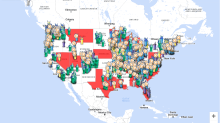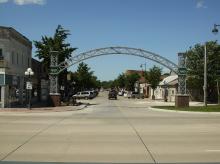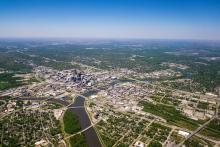Naming groups of things is one of the few pure joys in life. But despite having a shiver of sharks, a thunder of hippopotami, a discovery of witches, and about a million others, as of yet we've got nothing to describe a group of Internet access and infrastructure who have forgotten more about the business of broadband than the average person is likely to ever see, smell, or hear. From the economics of building fiber networks to the technical challenges of different radio spectrum bands, they separate the signal from the noise every single day.
So how about a scattering of wonks?
This week on the podcast, we bring over the most recent conversation from our Connect This! Show, where for 80 episodes we've hosted broad discussions about broadband policy and infrastructure deployments and live by the mantra that the devil's in the details. Christopher is joined by Travis Carter (USI Fiber), Kim McKinley (UTOPIA Fiber), and Heather Gold (Mears Group) to tackle a host of issues, including why we don't see more cities doing deals with entities like Google Fiber, what we can expect now that Anna Gomez has been confirmed to the FCC, what it means for BEAD grantees if the Affordable Connectivity Program goes away, and more.
Along the way, they hit on what we're seeing in Vermont's Communications Union Districts, a partnership in West Des Moines, Iowa, and whether there's renewed hope for the ACP as it nears the six-month mark from running dry.
This show is 79 minutes long and can be played on this page or via Apple Podcasts or the tool of your choice using this feed.
Transcript below.
We want your feedback and suggestions for the show-please e-mail us or leave a comment below.
Listen to other episodes here or view all episodes in our index. See other podcasts from the Institute for Local Self-Reliance here.
Thanks to Arne Huseby for the music. The song is Warm Duck Shuffle and is licensed under a Creative Commons Attribution (3.0) license.





